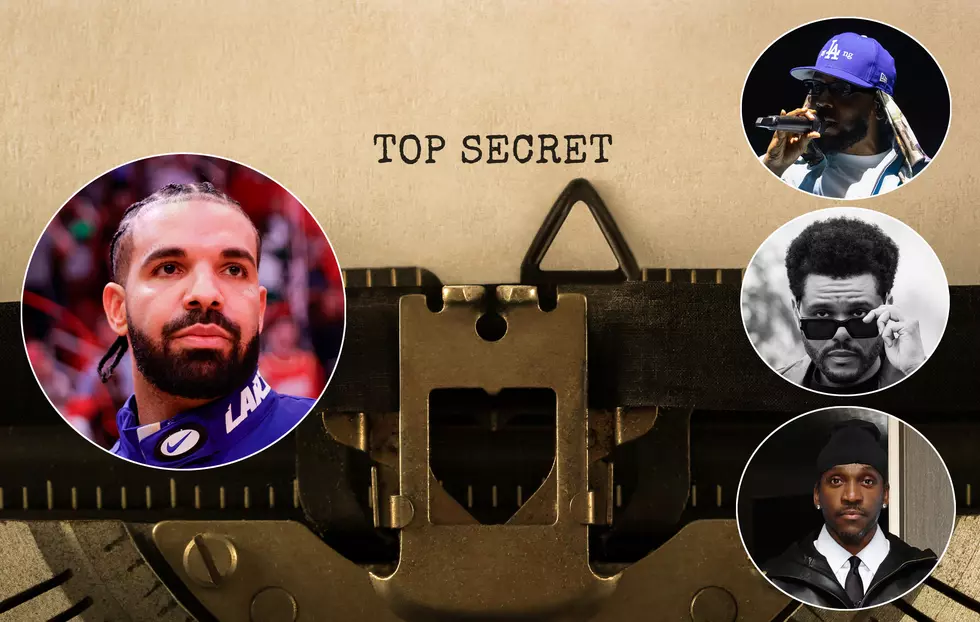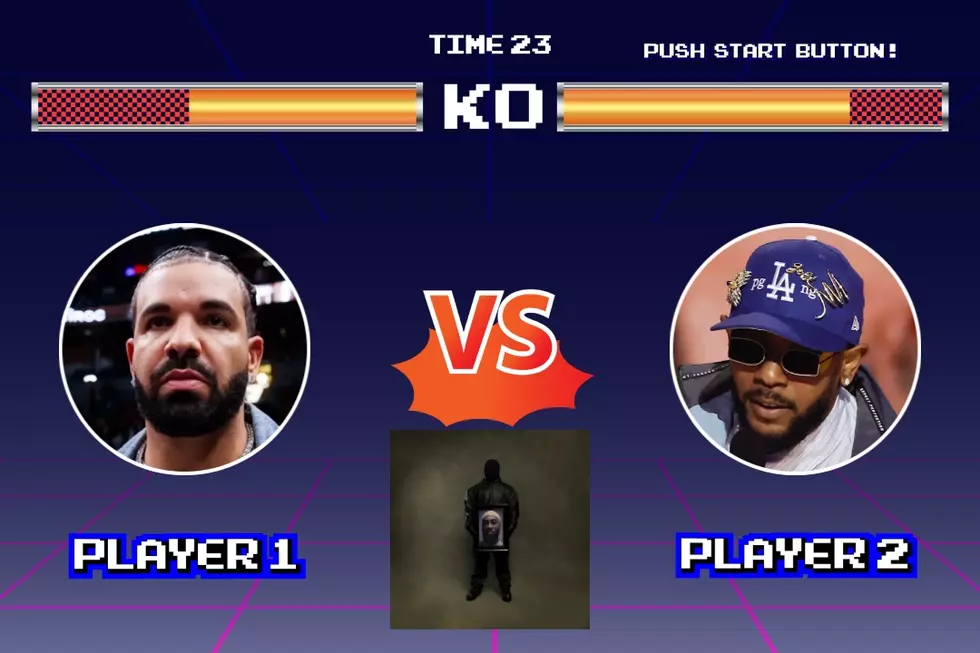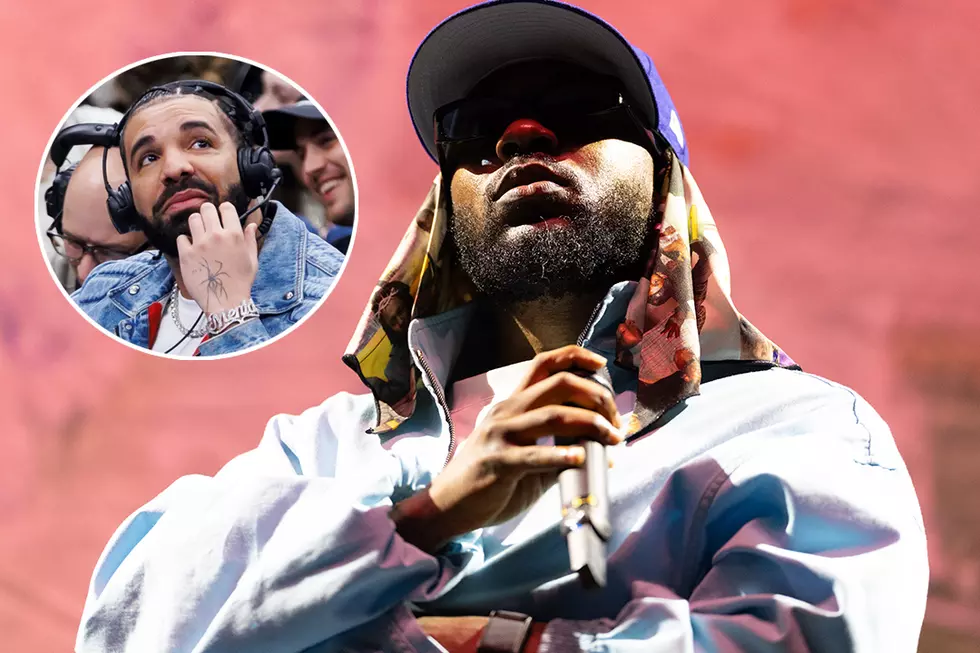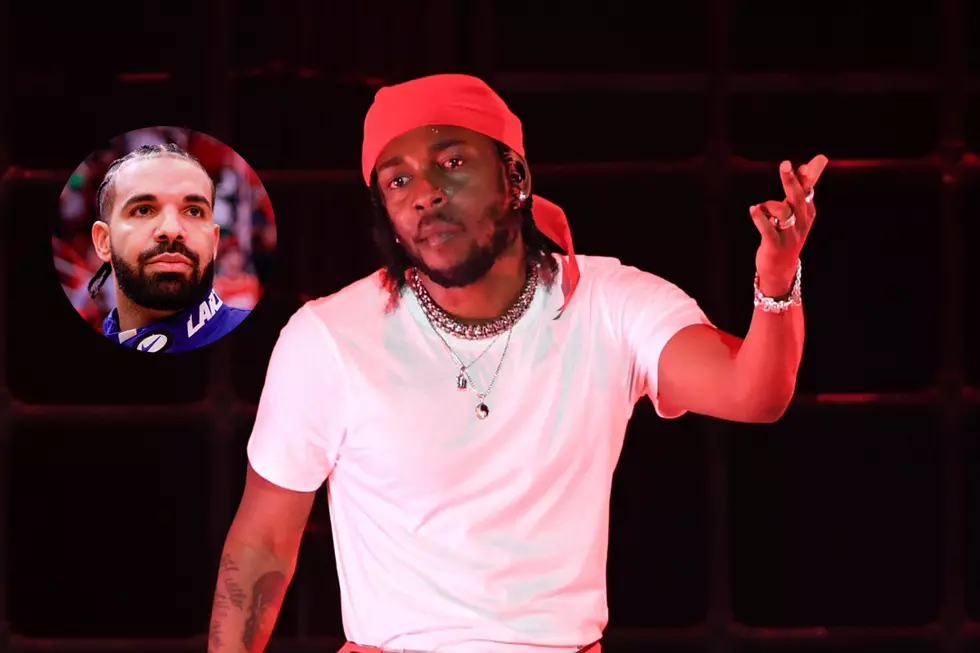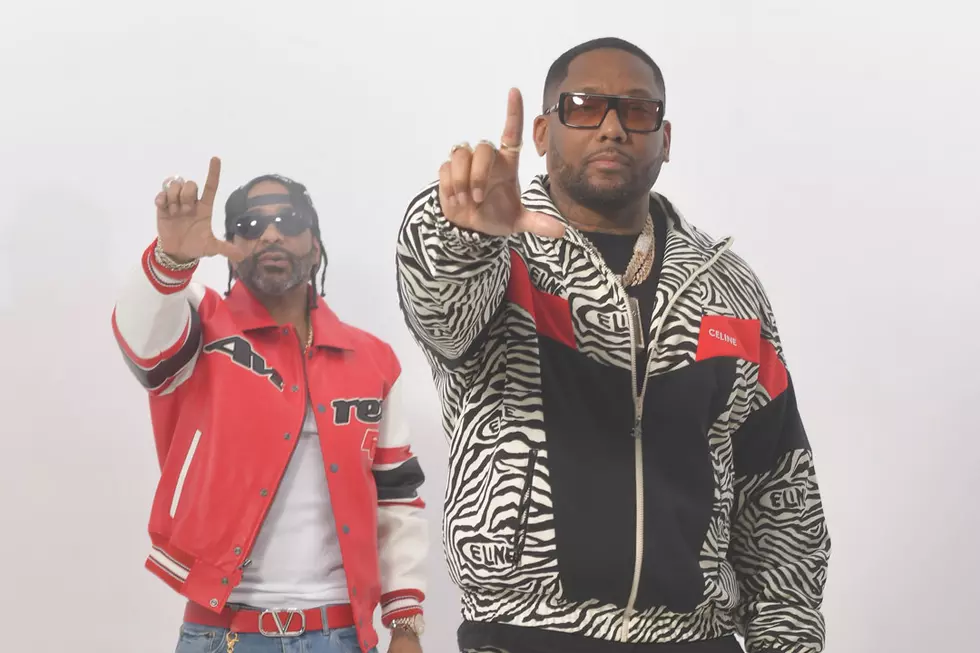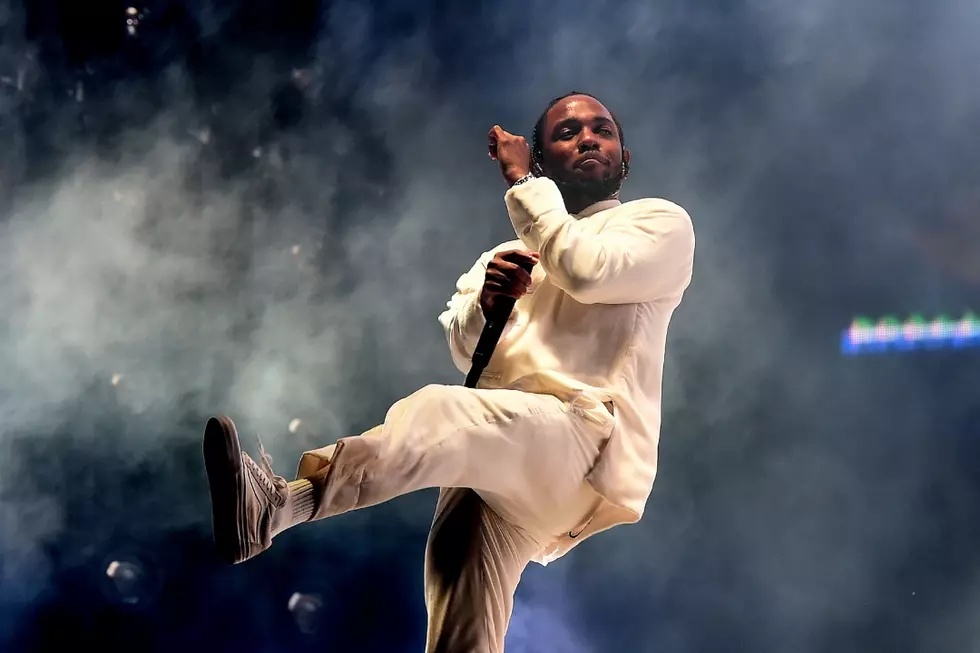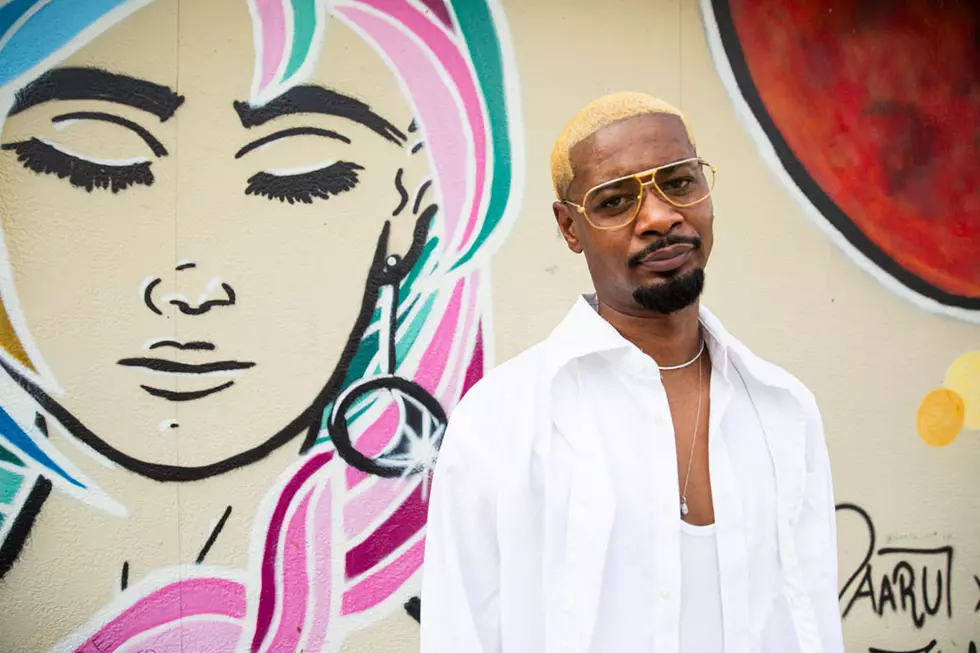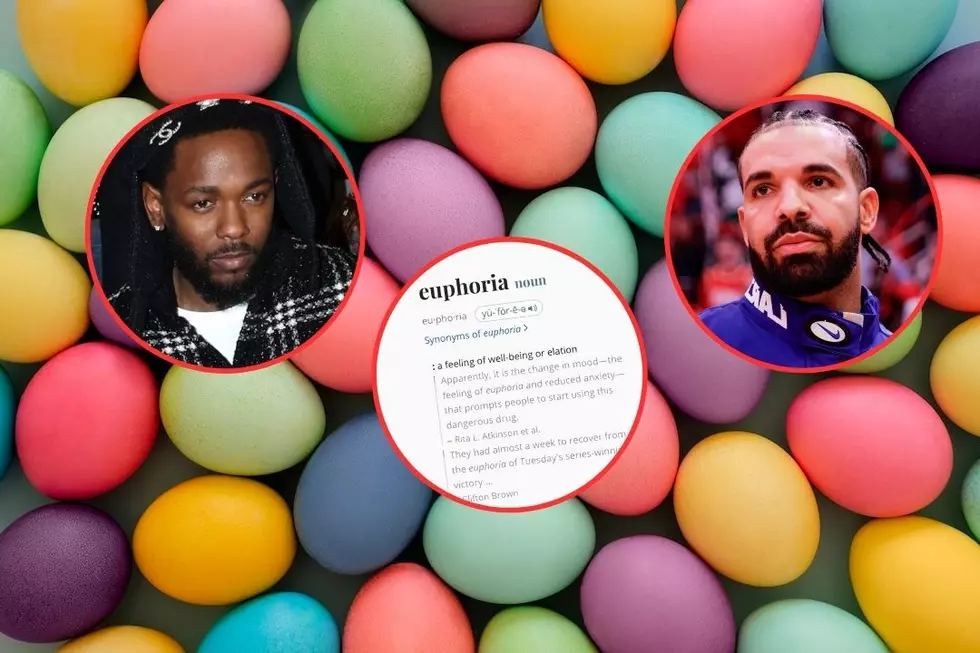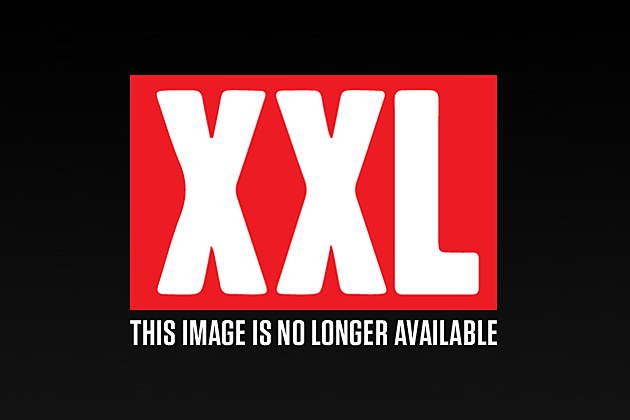
KY Engineering on Recording and Mixing Hits for 2 Chainz, Meek Mill and DJ Drama
You’ve heard his pseudonym in songs by the likes of 2 Chainz, Waka Flocka Flame and Lil Wayne. Finis White, also known as KY Engineering, is a Kentucky-bred, Atlanta-based recording engineer and Twitter personality (just check him at @kyfinis859) who is rapidly becoming one of the most respected and sought-after individuals in music. He’s the hard-working man behind albums by 2 Chainz, Waka, Lil Wayne, Young Money and DJ Drama. Having learned most of the mixing process from Weezy himself, the self-taught recording and mix engineer caught up with XXL to talk Meek’s recording habits, how he randomly came to mix DJ Drama’s Quality Street Music and 2 Chainz’ recent success. —Rachelle Jean-Louis (@RJL24)
XXL: You were just in the studio with Meek Mill working on Dreams & Nightmares earlier this year. Describe that process.
KY Engineering: It was an easy process. He’ll just watch some videos on YouTube, listen to his songs that he’s already done, pull up some beats and pretty much just go in and work. He doesn’t write anything down. He’s just sitting there thinking as the beat’s going, and as soon as I see him walk into the booth, I go sit down. We went to Miami to record. It was my birthday while I was down there. Me and Meek had been trying to link for a while now. The first time I actually talked to him was through Waka. I remember Waka got Meek on a song, so he was on Skype with him, like, “I’m in here with my engineer, KY.” And Meek san,g “KY Engineering!” A lot of artists do that. I be thinking a lot of artists don’t know who I am! It was the same thing when I met Kendrick. I met him and I told him my name, and he was like, “Man, I know who you are! You’re dope! You’re a legend.” I’m lik, Shit! [Laughs] That’s crazy. But [Meek and I] had been trying to link up for a while. So it was crunch time, I had been working on a lot of other projects, and he called and said, “We’re going to Miami.” It was just cool. The studio we worked in, when you go out on the balcony, the ocean is right there. So we just had good vibes in the studio, the door open, beats playing loud, ocean right there. Whenever he got something, we’d walk back in and he’d go in the booth and lay it down.
How is Meek's process different from 2 Chainz’ or Wayne’s?
Well, Meek doesn’t actually mess with anything as far as plug-ins or EQs, but he’s knowledgeable enough to open up his own sessions. Meek is kinda in between both [2 Chainz and Lil Wayne]. He knows what he wants as far as his voice goes. That’s a big thing with him because he has a different kind of voice, so he wants to make sure while he’s recording, that he sounds the way he wants to on that particular song. But at the same time, with Wayne, 2 Chainz, and Waka, they all do what he does. He can tell me the little things that he does want, and I’ll go in and I’ll add some stuff. If he likes it, we keep it. If he doesn’t like it, we’ll go back to the drawing board. [Laughs.] Meek was a battle rapper. He changes stuff a lot too. He’d go in the booth, and the verse would be there—it might even be there for that day—and he’d come back in tomorrow and say, “Yo, let me change that whole verse!” The verse would actually be a really good verse, and he’d just delete it for no one to ever hear it again. It sucks for the fans, yeah. But if it’s really dope and I feel strongly about it, I let my point be known. But when I work with people, it’s never really a fight. I’ll tell you my opinion, if they agree, they agree. If they don’t, cool, no beef. At the end of the day, I want the artist to be happy.
Does your role ever fluctuate depending on the artist you’re working with?
No, not really. Most artists now pretty much have a sense of what I do because of what I’ve done for other people. So most artists really don’t bother me too much. Starting off, nobody trusts you or wants you to touch their song because they don’t know you. When you first work with an artist, you can’t go in there and try to do too much. You just got to get a feel for them and let them get comfortable enough to where they trust you. 2 Chainz, I’ve known him for a long time. I did both Playaz Circle albums and we’ve worked together so much that he does what he does, and I do what I do. Waka’s the same way. He trusts me. He knows that I’m gonna do what I’m supposed to do.
Speaking of 2 Chainz, describe the change he’s made from being Tity Boi to becoming 2 Chainz, as you’ve witnessed it.
He just didn’t stop. It was the work ethic. We would sit in the studio and never had a conversation where he was like, “I’m gonna give this up.” But we did have conversations like, “What’s going on?” We’d listen to what was going on in the rap game, and then listen to his music at the same time, but no one was calling 2 Chainz for features. So he kept doing his own thing in the studio. And now, in just a year and half, he’s done like 120 features. Basically he just never stopped. The name change thing was definitely needed too, but we always called him 2 Chainz. Now that everyone’s calling him 2 Chainz, we say Tit, for Tity Boi. He always said it over his verses, and I guess people caught on to it since it was such a catchy thing. Tity Boi’s kinda hard to say when you’re on the radio. People want PG. But yeah, the name change, and just not stopping. Being the underdog, really.
You went from mixing 2 Chainz’ album to DJ Drama’s—how did that happen?
Twitter! Drama had said something on Twitter one day; he said “KY Engineering.” I had to look and make sure it was really him! [Laughs.] So I responded and said, “I need to mix your next single,” and he was like “We gon' work!” Shit, I ended up doing his whole album. He didn’t know who I was until he started hearing my name. I’d never met Drama, never been in the studio with Drama. I let my work speak for itself. That’s pretty much how I’ve met everybody. I’ve never been one to walk up on a star and say, “Yo, I’m KY.” I’ll be around them for like 20-30 minutes and then somebody else will walk up and be like, “Yo, KY,” and they’ll be like “KY? KY who? KY Engineering?” I be like, “Yeah.” They be like, “Oh, nigga why you ain’t say nothing!” [Laughs.] That’s just not my personality. No disrespect to those that do, I just don’t. You just gotta work. Most people now just think they gotta get on Twitter and spam everybody! Nah, it don’t work like that. It’s more about being around. When it’s game time for you, turn up! Let that work speak for itself!
So with Quality Street Music, were you always recording sessions in person, or were artists sending in their vocals?
Most of the artists—I recorded maybe some of the artists like Waka and 2 Chainz. The rest of the artists would send sessions over the Internet from wherever they recorded it at. With the Jeremih song [“My Moment”] Drama only had a hook. He’d booked the studio session with Jeremih and I was in there. Basically, he told Jeremih to come in and lay hooks for him, do whatever he wanted to do. So Jeremih was like, “I’m gonna start off by playing some stuff I already got.” When he played that “My Moment” hook, I was like that’s it! He played like two more. The other ones were dope, too. But that was the one. And you know, me working with 2 Chainz, I actually told Drama, that’s 2 Chainz. It was his, Summer [Walker]’s, and Leighton [Morrison]’s idea to put Meek Mill. I liked doing Drama’s album because it was actually different for me. Most people think I just do a lot of trap music, just stuff with heavy bass. I think that album showed that I can mix different kinds of beats. We had Hit-Boy, Boi-1da, T-Minus, Cardiak, and then different artists like Common, Cee-Lo, and Kendrick Lamar.
Recently you’ve worked with some of the biggest names in hip-hop. What are your future goals?
To be honest with you, I think the only thing that would make me happy now is branching out and doing more stuff other than the trap stuff everybody knows me for. As far as artists, more legends—people that I grew up listening to. I wish I could get Hov and Snoop Dogg because those were two of my favorite artists. I’m just trying to get to the next level. The mixing world is so hard to break into, so it’s pretty dope that labels will call and say, “We want you to mix this artist.” It wasn’t happening like that two years ago. [Working on] an album, I feel like that’s what I’m good at. You get way more than an engineer when you deal with me. I don’t actually write anything, but I’ll help you find beats. I help with song structure, everything like that. That’s why I like working on whole albums, not so much the mixtapes. I did Waka’s whole album, 2 Chainz’ whole album, Drama’s whole album.
It’s interesting, because you’re one of the more well-known engineers, and it’s not just because of your résumé.
It’s funny to me. Everything I do, I don’t think of it as being part of a brand. My Twitter trending topics like #RealNiggaHours or #WeAreUK are subconsciously there for people, you’ll remember them. But starting off, I wasn’t trying to be known because I don’t really care! I’m not shy, but I’m not the person that’s trying to be all in the camera. I’m not trying to be in your video, but sometimes I am in the videos. You don’t have to do an interview and say my name. It’s something where these artists will get a good vibe from me. Most people look at an artist and say oh, that’s the artist, they do it all! They don’t even think about the people in the back, until now. That’s the thing that I like about it the most. Some people are mad because I’m an engineer and actually known, but other people come up to me and be like, “I appreciate what you’re doing for us engineers, we’re an important part of music.” And we are! If you’re gonna be in the room with a wack engineer, your music gonna be wack. But if you’re in the studio with someone who knows what they’re doing, you’ll be good. That’s what people get with me.
More From XXL
